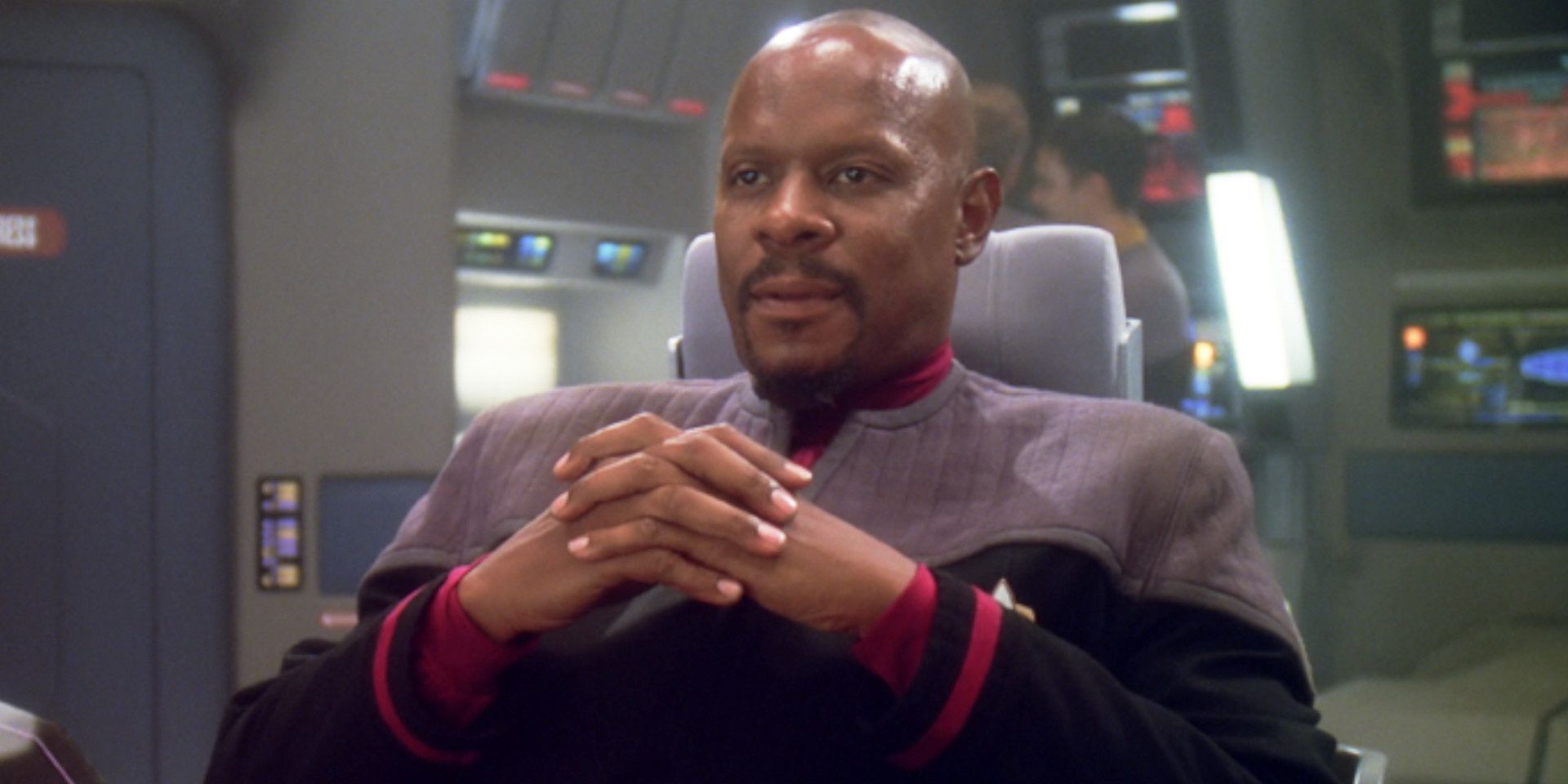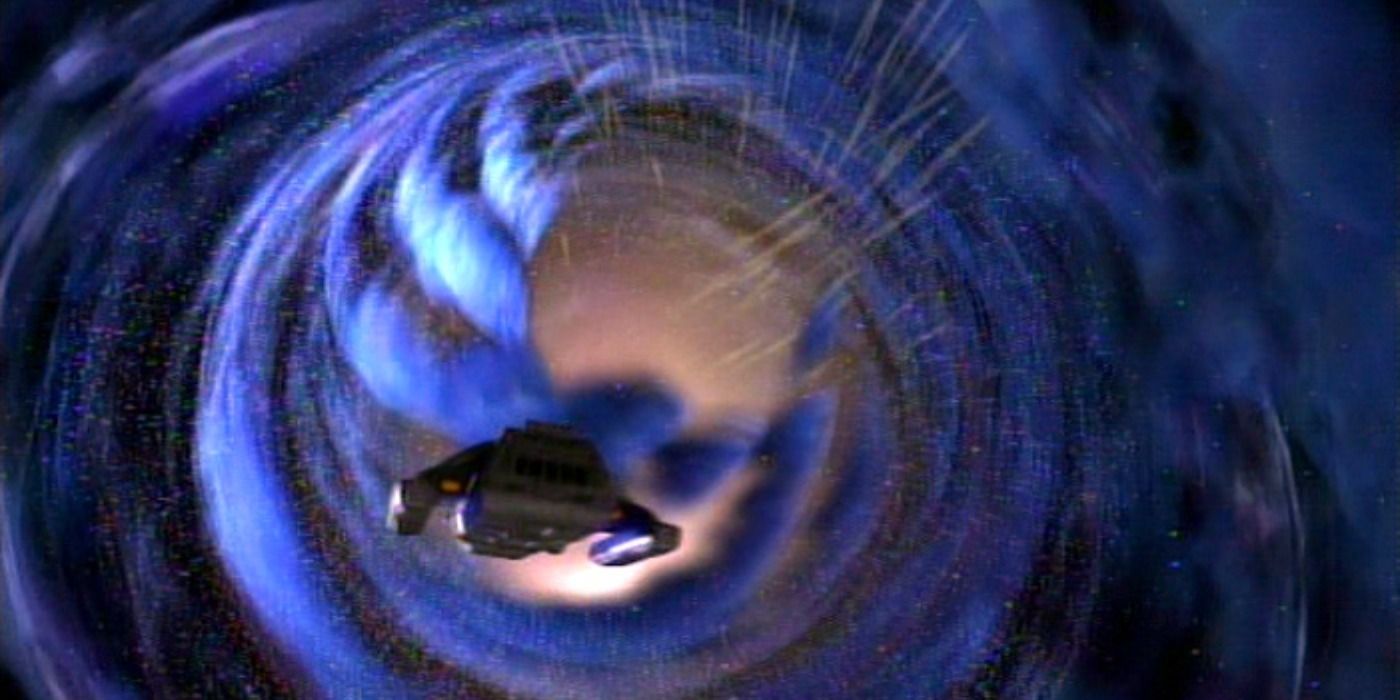Hear me out: the Bajoran wormhole, so central to the Star Trek universe, was, in fact, created by Captain Sisko. In Star Trek #28, Sisko is hurled back in time by the Prophets to ancient Bajor. The Bajorans are still in their Stone Age at this point, and Sisko becomes an important catalyst in the founding of their society, but he may also have a hand in creating the wormhole too.

Star Trek #28 is written by Jackson Lanzing and Collin Kelly and drawn by Tess Fowler. Sisko has spent two hundred years among the Bajorans, taking them from a group of warring, violent tribes to a peaceful society that will one day worship the Prophets. At the end of the issue, Sisko addresses the assembled Bajoran people. He challenges them to “pierce the sky” to create a “pure expression of Bajoran faith.” Sisko tells them he is a builder, and that his temple will be “celestial.”
Star Trek: Deep Space Nine's Wormhole Helped Set it Apart From Other Shows
The Bajoran Wormhole Saved an Entire Planet

When Star Trek: Deep Space Nine premiered in 1993, it was vastly different from its predecessors. While set in the same time frame as Star Trek: The Next Generation, Deep Space Nine presented a darker vision of the franchise. The first Star Trek show to be created without the input of franchise creator Gene Roddenberry, Star Trek: Deep Space Nine also eschewed starships in favor of a space station. Star Trek: The Next Generation established a conflict between the Cardassians and the Bajorans, who have occupied their world for decades, and Deep Space Nine’s creators used it as a backdrop.
Star Trek: Deep Space Nine’s creative team also made the decision to position the station near a wormhole that led to the then-mysterious Gamma Quadrant. This opened up an entirely new frontier for Star Trek, as that Quadrant had never been explored. The discovery of the Bajoran wormhole marked a sea change for the beleaguered people. The Cardassians had just withdrawn from Bajor, and the planet desperately needed a lifeline. The wormhole provided a rallying point for the Bajorans, who referred to it as the “Celestial Temple” where their “Prophets” resided.
The Bajoran Wormhole's Origin is Tied to the Rise of Their Society
Ironically, the Wormhole is Rising Out of a Crisis of Faith
When he first arrives on ancient Bajor, Sisko is in a great deal of spiritual and emotional pain, yet over time, he comes to embrace his role as the founder of Bajoran society.
For the first years of his exile on ancient Bajor, Captain Sisko was hostile to his situation, and understandably so. Sisko had just watched the death of the multiverse and his friends and family. When he first arrives on ancient Bajor, Sisko is in a great deal of spiritual and emotional pain, yet over time, he comes to embrace his role as the founder of Bajoran society. At the end of the issue, he comes to an epiphany: it is here that he can forge a world capable of stopping Lore and restoring creation.
The Prophets have a dark opposite, called the "Pah-Wraiths."
And it is from this crisis of faith that the Bajoran people will find themselves. First, SIsko’s unification of the Bajoran tribes laid the foundation for everything that came later, including worship of the Prophets. This would set the Bajorans on route to becoming a technologically advanced civilization that would eventually become space-faring. And this crisis of faith also leads to the creation of the wormhole, later giving the Bajorans hope in their darkest hour. Just how Sisko plans to guide a Bronze Age society into creating an actual wormhole will also play out in future issues.
Will the Wormhole Help Sisko Defeat Lore and Restore the Star Trek Universe?
The Wormhole's Creation is Serving Many Purposes
There is also another dimension to Captain Sisko creating the wormhole: it might play a pivotal role in defeating Lore and restoring the Star Trek universe. In the 24th century, the Prophets seemed to have more knowledge of Lore’s actions than Sisko, but as usual, couched what they knew in doublespeak and riddles. Sisko’s frustrations with the Prophets grew from this, but in the end they may have been guiding him towards creating the wormhole. The wormhole saved Bajor, and will prove crucial to saving the universe as well, and it will all be thanks to Captain Sisko.






